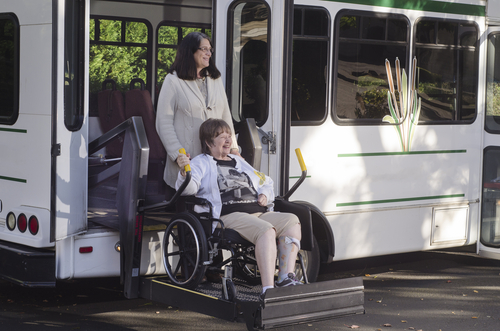The home healthcare industry faces a number of risks arising from professional liability and general liability exposures to injuries on the job and employment practices. Additionally, home healthcare agencies are exposed to an automobile liability risk when caregivers, companions, nurses, nursing assistants, and other employees and volunteers use their own vehicles on the job. In fact, many use their own vehicles when traveling from one location to the next, taking clients to the doctor or pharmacy and running miscellaneous errands for clients/patients.
The majority of smaller home healthcare agencies don’t provide business vehicles to their employees. It’s, therefore, important that hired and non-owned automobile coverage is included in a business auto policy to respond in the event an employee has an accident using his or her personal vehicle while on the job. In fact, many personal auto insurance policies will exclude liability coverage if a personal vehicle is involved in an accident while in the course of conducting business. In many cases, too, an employee may not have enough liability insurance, and the plaintiff will look to the employer’s policy to step in.
In addition to having hired and non-owned automobile insurance, it’s important that effective risk management and loss control measures are put in place to minimize a home healthcare firm’s potential auto exposure. These measures include the following:
- Obtain copies of validated drivers’ licenses (front and back) and verify applicant’s credentials with the state DMV.
- Outline and explain driver safety policies and code of conduct. Be sure the staff understands the importance of safety. Those who don’t meet the established driving standards of the home healthcare agency should not be permitted to drive during the course of business.
- Increase awareness of safe driving by sponsoring defensive driving courses.
- Require employees that need to drive for business purposes to carry liability insurance amounts that exceed the state minimums.
- Make sure employees maintain their vehicles and that the vehicles are roadworthy and safe.
- Review the organization’s driving policies and which employees are permitted to drive clients/patients. What type of patients can they transport? Is the vehicle handicapped-equipped?
- Establish an accident reporting policy.
- Have employees keep a first aid kit in the car, and prepare for winter emergencies by carrying a blanket, flares, flashlight, water, shovel, etc.
- If an employee is driving to an unfamiliar area, he or she should plan the route in advance and check road conditions.
Caitlin Morgan can provide you with assistance in securing a comprehensive insurance program for home healthcare clients, including hired and non-owned auto insurance. For more information about our tailored insurance products, please contact us at 877.226.1027.


